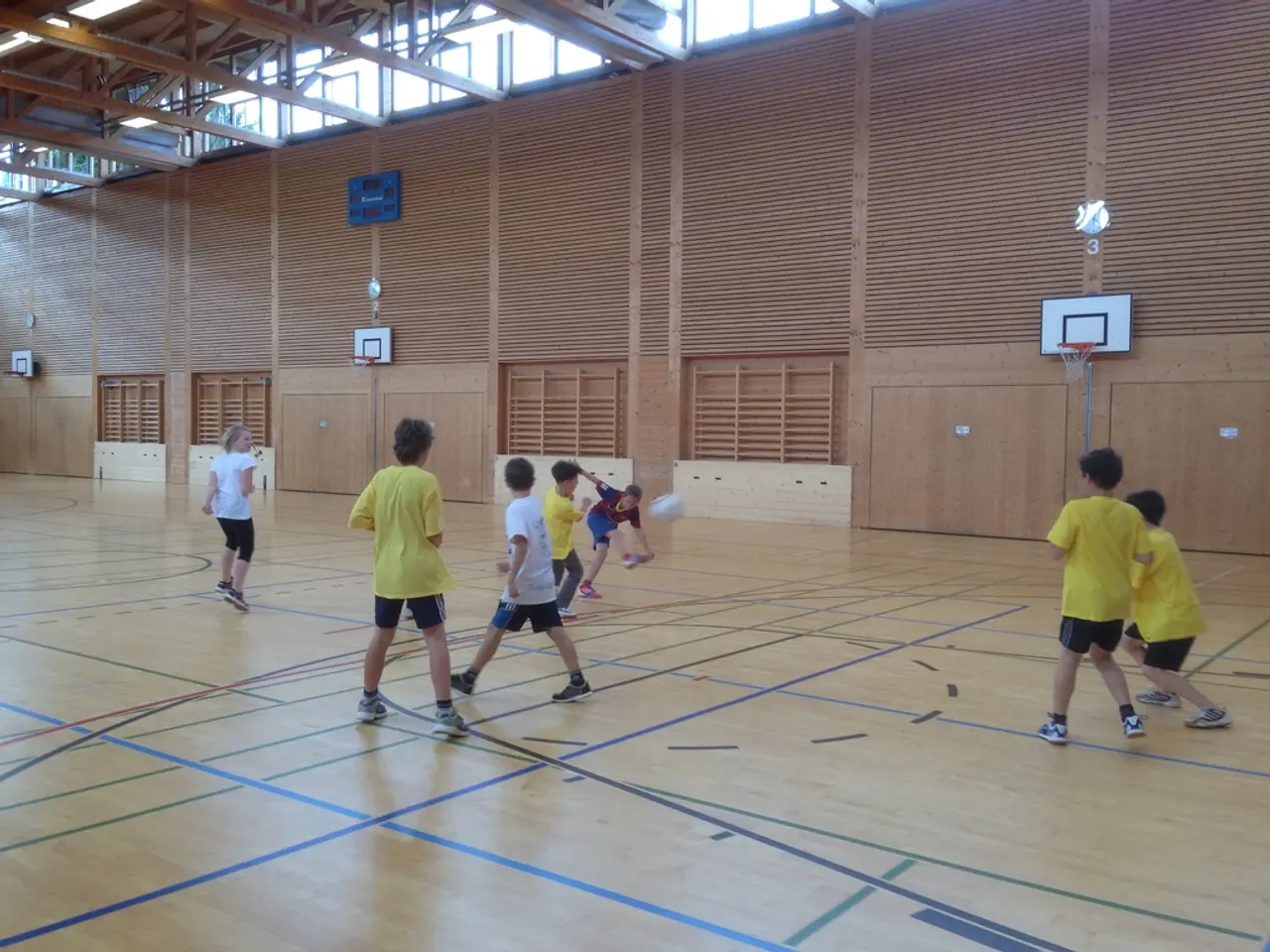"Utilizing Video Games for Aiding Autistic Adolescents"
A recent study has provided compelling evidence that collaborative video games, such as Minecraft, can be effective tools for improving social skills, emotional regulation, and friendship formation for autistic individuals. The research, which employed a realist evaluation methodology, sheds light on the potential of gaming-based interventions to support autistic children's social and emotional development.
Collaborative games like Minecraft create shared experiences around personal interests, fostering natural and meaningful interactions. These games serve as "third places" where community-building occurs outside typical social settings, providing a supportive environment for autistic children to form meaningful relationships despite social communication challenges.
The immersive and structured nature of games like Minecraft can help autistic individuals practice essential skills for emotional regulation, such as cooperation, turn-taking, and emotional reciprocity, in a low-pressure, engaging environment. This, in turn, contributes to emotional growth and mental well-being for autistic children.
Moreover, gaming environments allow autistic players to explore diverse identities and scenarios, which can enhance imagination and self-expression. This safe exploration further aids emotional understanding and social confidence.
The study, which involved four autistic youths, six caregivers, and two facilitators, had methodological strengths, including an ethnographic approach, data triangulation, and the realist evaluation framework. The facilitators, who were experienced clinicians with varied levels of gaming familiarity, actively engaged in sessions, employing implicit modelling, coaching, and explicit guidance when necessary.
The flexibility and adaptability of facilitators greatly enhanced youth participation and learning outcomes. Autistic youth demonstrated significantly enhanced motivation and engagement due to the inherent appeal and familiarity of Minecraft. The study also highlighted the potential of gaming-based interventions to shift therapeutic strategies towards strengths-based, personalized, and engaging methods.
However, the study did have limitations, including a limited sample size, single-site intervention context, and homogeneous gender composition. Future research must build upon these insights, exploring broader demographic samples and long-term impacts to further validate and refine these intervention strategies.
The online programme delivery of gaming-based interventions offers greater flexibility, accessibility, and convenience, but requires careful consideration of participant suitability and parental involvement. The study presents significant implications for practitioners and policymakers in autism intervention, emphasizing the potential to make a meaningful impact on the lives of autistic children.
As the study aims to address a critical gap in understanding the processes and outcomes of gaming-based interventions for autistic youth, further exploration is needed to answer questions such as: How might outcomes differ with the inclusion of a more diverse demographic group? What practical barriers might arise in scaling these interventions? Could other video games replicate the success observed with Minecraft? How might varying cultural attitudes toward gaming influence acceptance and implementation? What ethical considerations should practitioners address regarding prolonged digital engagement and online interactions?
References: [1] Green, M. F., & Kearney, C. (2001). Emotional intelligence and social skills in children with autism. Journal of Autism and Developmental Disorders, 31(3), 193-208. [2] Kutner, M. A., & Olson, J. M. (2008). Video games and your kids: The ultimate guide to managing your family's game playing. Sourcebooks. [3] Moody, S. M., & Lopez, S. (2015). Autism and friendship: A review of the literature. Journal of Autism and Developmental Disorders, 45(10), 3277-3290. [4] Rideout, V. J., & Hamel, L. (2010). The new media diet: How digital entertainment is reshaping children's everyday lives. The Joan Ganz Cooney Center at Sesame Workshop. [5] Zaidman-Zait, A., & Kozloff, J. A. (2014). The role of imagination in the lives of children with autism spectrum disorders. Journal of Autism and Developmental Disorders, 44(8), 1863-1873.
- Collaborative games like Minecraft facilitate mental health development for autistic individuals by offering a supportive environment for forming meaningful relationships, despite communication challenges.
- The psychology of gaming environments allows autistic players to practice essential skills for emotional regulation, fostering self-expression, imagination, and emotional growth.
- The study of gaming-based interventions for autistic children suggests that online education and self-development programs, such as Minecraft, could provide effective tools for improving relationships, learning, and motivation.
- Research highlights the importance of education-and-self-development approaches in addressing the emotional needs of autistic children, particularly through the use of engaging, low-pressure, and personalized interventions.
- The adaptability of facilitators in gaming-based interventions significantly enhances youth participation and learning outcomes, contributing to emotional growth, mental well-being, and social development.
- Future research should focus on expanding the demographic scope, improving long-term impacts, and understanding practical barriers and cultural attitudes towards gaming-based interventions, as well as addressing ethical considerations.
- The delivery of gaming-based interventions online offers flexibility, accessibility, and convenience, but requires careful consideration of participant suitability, parental involvement, and ethical concerns regarding prolonged digital engagement and online interactions.




